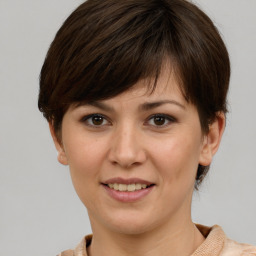INTRODUCTION
Organisational behaviour is the study of the way in which people communicate with each other in groups. It is the study of human behaviour in organisational settings, an interaction among human behaviour and firms. It is the field of study that investigates the affect that groups, structures, and individuals have on the behaviour of firms with the aim of applying such knowledge owards improving the effectiveness of the company. The main purpose of organisational behaviour is to amend the organisational theory and also create an effective concept of the organisational life (Baum, Frese, and Baron, 2014). This present report is based on the 4Com plc, and it was established in 1999. Its main aim is to improve communication services for small-scale markets in the United Kingdom. Under this mention, a report will be discussed about the politics, culture, and power influence on team and individual performance and behaviour. Philosophies and concepts of organisational behaviour in firm context and business situation will be discussed in this mention report. There will be discussion about the process theories of motivation as well as motional techniques that enable effective attainment of goals.
TASK 1
P1 Organisation's Culture, Politics and Power Influence Individual and Team Behaviour and Performance
Organisational behaviour refers to values and attitudes of individuals who are working with the company. In an organisation, behaviour of employees is more necessary because it helps them perform in a better manner. In 4Com plc, there are large number of staff members and they follow rules, norms, principles and values at the time of conducting business activities. They all work in coordination in a group for attaining specific aims and objectives (Bolino et. al., 2013).
Organisational culture: Culture depends on shared values, customs, attitudes and beliefs which are created over a period of time. It encompasses behaviour and value that contribute towards psychological and unique environment of company. It represents beliefs, principles and collective values of employees at workplace. The organisational culture consists experiences, philosophy and expectations which guide and lead the team members.
Charles Handy culture model
This model explains the culture as way in which people follow and live the unwritten norms and rules. Different culture are mentioned below as above:
Power culture: In a company, power is to be held through some individuals, whose influence spreads through company. There are some of the business firms where power is in hands of some people and they are only authorised for taking the decisions. They are most necessary people at the workplace and are able to take the main decisions. In addition to this, these people can delegate their responsibility to other staff members (Carpenter, Berry and Houston, 2014).
Task culture: Firms where teams are developed to attain targets or solve the issues to follow task culture. In the 4Com plc company, people with common interests come together to develop team. In this kind of culture, each team members contributes equally to achieving the tasks in an innovative manner.
Person culture: In 4Com plc company, staff members feel that they are necessary part. This company follow the culture, which is known as person culture. Under this, employees are concerned regarding their own as compared to organisation.
Role culture: It is a culture, and in this each staff member is delegated the responsibilities and roles on the basis of their specialisation and interests. In such a culture, staff members decided the best way to play their roles and accept challenges willingly.
Among the all cultures, 4Com plc. should adopt the power and task culture that support the company to achieve its aims and objectives.
Organisational power: IN business, power plays a necessary role, from governing how the decisions are developed to how staff members can interact with each other. Organisational power is used to possess and instruct the functions and operations of a company that make business successful (Graham, Ziegert, and Capitano, 2015). In addition to this, 4Com plc can adopt many types of power, which can assess to expand the company. Different kinds of power are mentioned below that have a significant impact on the performance of teams and individuals:
Expert power: It depends on the perception of staff members that the manager has more knowledge or capabilities that other employees do not possess. Managers are experts in their field so that they can manage as well as conduct the activities in an effective manner. In a team, each member is important because they are experts in their areas. It will be helpful in making improvements in behaviour between staff members.
Coercive power: Under this, it is the ability of a manager to force a staff member to follow order by threatening staff members with punishment if staff members do not comply with order. It is the most necessary concept to understand regarding coercive power to use force application. If the employees will not behave in a proper manner with the other staff members, then the manager has the power to terminate. It will help in protecting culture if firm and also develop positive impact on behaviour of team members (Huang and Bond, 2012).

Referent power: It refers to the ability of a leader to impact a follower because of respect, affection, loyalty, desire, and respect to gain approval. Under this, managers treat their staff members with respect and motivate them to work in coordination. This type of power does not include actual power in the company because of the high turnover of employees. In addition to this, referent power is held through the team leaders, who guide the team and their responsibility to manage the work between team members with coordination.
Organisational politics: At the workplace, politics and power both play a necessary role that governs the decisions formed through interaction. If 4Com plc has the better political environment, then it will influence in a negative and positive manner.
Positive impact: It is effective for those staff members who learn about navigating the politics at workplace. It is helpful in enhances the growth of company along with attain organisational goals within a given period of time. In 4Com plc., politics provide optimistic and friendly environment under which staff members work in proper coordination. Under this, it is necessary that firm should provide equal treatment to whole employees, which minimises dispute and increases productivity (James and Williams, 2013).
Negative impact: If the staff members are included in the negative politics, then conflict will be arise at workplace, and it will develop negative impact on operations and tasks of 4Com plc. In addition to this, there are many reasons which can impact the performance of company for instance, unethical behaviour of employees, favouritism, etc.
TASK 2
P2 Content and Process Theories of Motivation and Motivational Techniques Enable Effective Achievement of Goals in an Arganisational Context
Motivation is a procedure of stimulating the people to take actions for achieving specific aims. It is reason of objectives, actions and willingness of people. In this, motivation is helpful in providing the direction to employees to behave in a proper manner through which they guide to perform their activities in significant manner so that they can focus towards attain specific objectives (Judge and Kammeyer-Mueller, 2012). The manager of 4Com plc company enhances motivation level of its employees by developing engagement activities, appraising them, providing them rewards, etc. in addition to this, there are two different types of motivation theories, which are mentioned below:
Content theory: It explains why the needs of humans change over a period of time. This theory defines particular factors which motivate the behaviour. It is related with internal factors which actuate the behaviour of human. different motivational theories are mentioned below:
Herzberg motivational theory: It is proposed as two-factor theory and on the basis of this, there are some of the job factors which result in satisfaction and other job factors that prevent dissatisfaction. The two factors are given below:
Hygiene factors: These job factors are necessary for the existence of motivation in an organisation. They do not lead the positive satisfaction for long period of time. Different hygiene factors are:
Pay: The salary structure or pay both should be reasonable and proper. It should be competitive and equal to those people who are in similar sectors and in the same domain. It will help in enhancing the motivational level of employees at the workplace.
Interpersonal relations: Under this, the relationship of staff members with the subordinates, peers, and superiors should be acceptable and positive. There should not be any humiliation or conflict element present.
Administrative and company policies: It is necessary that the policies of the firm should not be rigid and should be clear and in a fair manner. It should consist of proper vacations, flexible working hours, a positive environment, and many others (Kulik and Olekalns, 2012).
Physical Working Conditions: In an organisation, working conditions should be clean and hygienic so that employees cannot face any kind of issue. It is essential that the working equipment be well maintained and updated.
Motivational factors: Under this, hygiene factors cannot be considered as the motivators. These factors are helpful in enhancing the motivation of staff members for better performance. Various motivational factors are mentioned below:
Growth and promotional opportunities: At the workplace, there should be achievement and growth opportunities in the company to motivate the staff members in order to perform in a well manner.
Responsibilities: In this, it is necessary that staff members hold themselves responsible for work. They should reduce the control but also sustain the accountability.
Growth and promotional opportunities: In 4Com plc, there should be advancement as well as growth opportunities to motivate the staff members to perform well (Lazaroiu, 2015).
Maslow motivational theory
This theory was given by Maslow, who stated that individuals working in organisation are motivated to attain specific needs. Survival is known as one of the basic needs, and this is known as the first thing which affects behaviour of employee. Fulfilment of one level of a human being, the next level encourages him and impacts his behaviour. Maslow categories human needs into five categories, as given below:
Physiological needs: This level consists of the basic requirements which are essential for survival of a human being, such as food, air, water, clothes, sleep, and drink. In case these needs are not satisfied, then an individual cannot work in appropriate manner. all other needs remain secondary when these needs remain unfulfilled. 4Com plc always require to consider these needs of a human being so company can satisfy needs of their employees and at the same time retain them for long time. In this case, compensation package of all workers should be like that so they can at least fulfil the basic needs of their routine life.
Safety needs: This is the second level of motivation theory given by Maslow and this consists of the need of protection of various factors, stability, freedom from fear and security. 4Com plc require to offer job stability and workplace security to their workers to fulfil their safety needs.
Love and belongingness needs: Third level of human need is known as social, which cover feelings of belongingness. The need for interpersonal relationship affect the behaviour of workers in organisation. Development and working of team should be encouraged by the managers of 4Com plc in order to satisfy this need of workers (Lee, Kim and Kim, 2013).
Esteem needs: This is the fourth level of motivation given by Maslow, which is further divided into one is esteem for oneself and second one is respect from others. To satisfy this need of employees working 4Com plc, managers should provide proper growth and promotion opportunities to employees so they can earn respect. One of the main benefit of this is that it enhances employee's morale and motivates them to work well.
Self-actualisation needs: This is the last level of motivational theory given by Maslow and this consists realisation of personal potential, seeking personal growth in organisation and self-fulfilment.
As per the Maslow, needs of a human being form a hierarchy. An individual never goes to satisfy the needs of higher-level needs in case of unfulfillment of lower-level needs. After satisfaction of lower level needs an individual focus to satisfy the needs of next level (McShane and Von Glinow, 2013).
Process theory refers to the behavioural and psychological processes which motivate an individual to act in specific manner. It examines how requirements of an individual will impact on its behaviour in context to attain objectives concerned to those requirements.
Different motivational techniques
Develop positive working environment. Motivate the staff members through offering positive work environment so that employees will work in a positive manner. Sharing of ideas and encouraging teamwork are helpful to perform in a better manner. If the working environment is better, then staff members will be able to perform well, and there will not be conflict.
Provide incentives: In 4Com plc, manager enhances the motivation through giving incentives. firm can develop individual incentives for team or each staff member in order to motivate them. Incentives can be in the form of financial and also non-financial (Ng and Feldman, 2012).
Set goals: Help the staff members become self-motivated through helping develop professional objectives and aims. It is necessary that employees should be aware about the set goals so that they can focus on achieving them in a better manner. If a staff member is motivated towards an upward career path, then manager should provide the job shadowing opportunities along with mentoring.
TASK 3
3. An Effective Team As Opposed to An Ineffective Team
Effective team refers to capacity of the team members to attain objectives which are developed through top management. The main purpose of an effective team is to improve the quality, change process and also complete the projects.
Ineffective team: These are made up of people who do not mix in proper manner and also do not have the capabilities or competencies to perform in a better manner. In a team, there are several members with similar skills while the other team suffers from lack of training ( Olson, Herman and Zanna, 2014).
On the basis of above definition, some difference can be evaluated and these are explained below:
|
Effective Team |
Ineffective Team |
|
· Members of effective team have a common goal or motive for performing their task so in order to make this team, individuals who have same interest are included. · While discussing things in a group, they have same point of view, which, moreover, assists them in taking an effective decision so as to accomplish goals and objectives in speculated time frame. · In this leadership is not confined to only one person; anybody can lead their team according to the situations and circumstances. |
· Whereas ineffective team, they have confined themselves with any kind of perception and defend themselves in using any new kind of ideas and thoughts. · They have lack of vision, which creates problem in achieving their set targets and aims in a given time frame. · Mutual understanding is the biggest drawback of an ineffective team, which further results in clashes. As a result, goals and objectives are not achieved properly. |
In order to know more about team building, further Belbin theory of team development is explained below:
Belbin Theory: This theory was developed so as to know about individual's behaviour towards its team and basically, it includes nine roles and these are as follows:
Action-Orientated Roles
Shaper: They challenge team so that they can improve Shapers are dynamic in nature and provide the best approach through which problems can be solved.
Implementer: They are the people who make things get done and help team in implementing ideas and thoughts into practical form (Pinder, 2014).
Complete Finisher: These are the ones who go through the projects in order to know whether all the task are completed in an appropriate manner or not.
People-Orientated Role:
Coordinator: They are the ones who helps team maintain better coordination between team members. Thus, they guide workers about the perceived objectives.
Team Worker: Every company needs an effective team so that work can be done in a good manner and for this, it is crucial that a better team is built where all individual have same understanding. Thus, team workers play their role in accomplishing the set targets and objectives in a given time frame.
Resource Investigator: After analysing the external as well as internal factors, they lookout for resources which can provide better results.
Thought-Orientated Roles
Plant: They are considered creative innovator as they come up with new and innovative ideas which can give better results and outcomes. Thus, they work hard in order to put the company in a better position (Podsakoff and House, 2013).
Monitor Evaluator: These are the people who identify and analyse different ideas and select the best, which can be beneficial for the company in providing maximum benefits. Therefore, on the basis of monitored performance strategies, other activities are conducted.
Specialist: They are considered as the one who are specialised in knowledge so that job can be done in an effective manner. Specialists are skilled in their activities and guides others in performing their task in a better way.
TASK 4
P4 Concepts and Philosophies of Organisational Behaviour Within an Organisational Context and a Given Business Situation
In this present time period, firms use various motivational theories to improve the performance of employees because of fast-changing environment. Under this, various motivational theories for instance, Herzberg and Maslow, are effective and can be used through 4Com plc. In regards to this, motivation is a necessary factors that helps in encourage as well as enhance performance level of staff members in a proper manner (Wagner III and Hollenbeck, 2014). There are different barriers given below which impact the performance of employees at workplace:
Negative work environment: It is a main factor which impacts the performance level of employees in negative manner. Through negative working environment, conflict, misunderstanding, etc. will be arise. It will negatively impact the productivity and performance of company. It is the responsibility of a manager to develop a positive working environment so that all staff members will work together at workplace and will focus towards achieving the set target.
Discrimination: When manager behave with its staff in an inappropriate manner and also discriminates against them on the basis of colour, religion, caste, gender, etc. then it develops a negative impact on employees. In order to minimise discrimination, government developed legislation such as Discrimination act, Equal Opportunity Act, etc.
Path goal theory
This theory is based on specifying the behaviour or style of leader that best fits staff members and also work environment in context to attain the objectives. Different factors in Path goal theory are mentioned below:
Employee Characteristics: Under this, staff interpret behaviour of leaders on the basis of requirements for an instance degree of the structure they require desire for control, affiliation, etc. In order to perform the activities in a better manner, staff members should have locus of control, experience, abilities, etc.
Task and Environmental Characteristics: Overcoming from the obstacles is more focused of the path-goal theory. If the obstacles becomes strong, then leader required to step in and assess staff to choose path to work around (Baum, Frese and Baron, 2014). Some of more complex task characteristics are mentioned below:
Design of task: It might be call for support of a leader. For instance, if task is ambiguous, then leader of 4Com plc might have to provide it in more structured way.
Work group: If team is not supportive, then there is a need to leaders to espouse esprit-de-corps and cohesiveness which give enthusiasm, devotion and comradeship to all team members.
Formal authority system: Depending on task authority, leader can give clear goals and also give staff members some control.
Path goal leadership: An independent variable of the Path-Goal Theory are the leader's
- Under this, it is necessary that leaders should adjust their behaviour or style on the
- basis of task and employee characteristics. It is necessary that leaders know about the characteristics of employees and, according to them, provide the tasks or activities to them.
- Different leadership styles are mentioned below:
- Directive: Under this, behaviours of leaders are characterised through setting the clear rules and objectives for subordinates and also assure that expectations as well as directions are understood and defined in a clear manner (Bolino et. al. 2013).
- Participative: In this, leaders discuss with their team members before any decisions on a specific area. It is an effective way to enhance the motivation of employees. It is more effective when the staff members are highly trained and also show their involvement towards work.
- Supportive: Leaders make the work better and also pleasant for employees by showing their concern for them and also by developing a friendly environment. In addition to this, it is effective in the conditions under which relationships as well as tasks are psychologically or physically challenging.
- In order to enhance the motivation, it is necessary that the employer define the goals, clarify the path, provide support to staff, and also remove all obstacles so that they can focus on their work and also achieve the set objectives within the given time period.
CONCLUSION
It has been concluded from the above-mentioned report that the behaviour of staff members plays a necessary role in an organisation. Organisational behaviour is a method under which the staff members communicate at the workplace. In this report, we studied the Herzberg and Maslow motivational theories used by 4Com plc to enhance the motivation of employees. Concepts and philosophies of the organisational behaviour in the company context and business situation have been discussed in a proper manner.
REFERENCES
- Baum, J. R., Frese, M., and Baron, R. A. eds., 2014. The psychology of entrepreneurship. Psychology Press.
- Bolino, M. C., and et. al. (2013). Exploring the dark side of organisational citizenship behaviour. Journal of Organisational Behaviour. 34(4). pp. 542-559.
- Carpenter, N. C., Berry, C. M., and Houston, L., 2014. A meta-analytic comparison of self-reported and other-reported organisational citizenship behaviour. Journal of Organisational Behaviour. 35(4). pp. 547-574.
- Graham, K. A., Ziegert, J. C., and Capitano, J., 2015. The effect of leadership style, framing, and promotion regulatory focus on unethical pro-organisational behaviour. Journal of business ethics. 126(3). pp. 423-436.
- Huang, X., and Bond, M. H. Eds., 2012. Handbook of Chinese organisational behaviour: Integrating theory, research, and practice. Edward Elgar Publishing.
- James, L. R., and Williams, L. J., 2013. Causal models in organisational behaviour research: From path analysis to LISREL and beyond. In Organisational Behaviour . (pp. 191-216). Routledge.
- Judge, T. A., and Kammeyer-Mueller, J. D., 2012. General and specific measures in organisational behaviour research: considerations, examples, and recommendations for researchers. Journal of Organisational Behaviour. 33(2). pp. 161-174.



 Company
Company



















